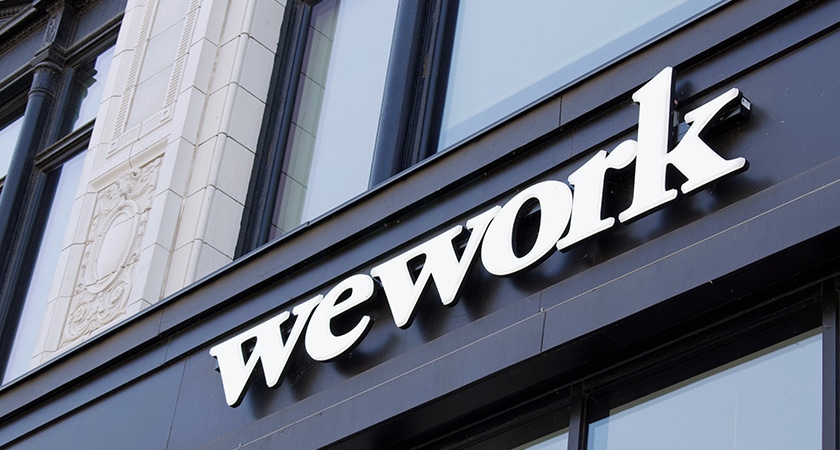WeWork offers premium office space to businesses of all sizes and had an initial focus on co-working spaces and small businesses. It was a startup company with a peak valuation of $50 billion in early 2019, mostly built on its promise to disrupt the commercial leasing industry the same way that Uber had disrupted the taxi industry and the charisma of its founder, Adam Neumann. But its appetite for disruption was much larger than its appetite for proper corporate governance. This led to an initial public offering that looked so bad to investors that it had to be withdrawn. If you are a board member, articles about WeWork should be required reading as it is a clear road map for how not to run a company.
There are several lessons to be learned from the fallout of the scandal for board members and anyone involved in corporate governance.
Encourage Board Gender Diversity
WeWork went public without a single woman on its board, which sparked an outcry from investors all on its own. By contrast, every company on the S&P 500 now has a female board director. In Canada, 76% of TSX-listed companies can count at least one woman on their board. A 2019 study undertaken by a team at Stanford showed that investors really do care about gender diversity. The multi-year study tracked announcements of diversity numbers and consequent rises and falls in share prices. The study conclusion was that when higher gender diversity numbers were announced by companies, stock prices went up. When bad numbers were reported, stocks did not go up but remained at the same level. This study alone is enough to make the business case for gender diversity.
Watch Out For A Cult Of Personality Executive
Many C-level executives have outsized personalities, which many think they require to helm a large company. However, a recent study that is due to be published in the Academy Management Journal shows that CEOs that exhibited high levels of extroversion and neuroticism are more likely to drive stock volatility that does not translate into higher shareholder returns. Specifically, those with higher levels of extroversion experienced 2.4% higher stock risk on average and reduced shareholder returns of 3.3%. What you want to be on the lookout for are managers who don’t take criticism well, require control beyond the area of their responsibilities, and surround themselves with people who do not challenge their ideas.
This kind of personality will usually find itself at odds with a board anyway due to the amount of control they want to have, so they are easy to spot. In Neumann’s case, he wanted 10x the voting power of any other major shareholder while being at the helm of a controlled company. This is an outsized amount of control for any executive, even if they are the company’s charismatic founder. While Steve Jobs’ trouncing from Apple was eulogized as a big mistake, it was done partially because he was locked in a power struggle with the board. When he returned years later, he took several measures to improve the company’s profitability and even enhanced its corporate governance policies.
Watch the Company Financials Carefully & Enable Whistleblowers
Watching a company’s financial management has always been a key duty of every board member. WeWork had many grey financial arrangements, including Neumann’s practice of privately purchasing real estate and leasing it to WeWork. The problem with spotting shoddy financials is that people who are engaging in them are usually very good at hiding them. Their weak spot is the people surrounding them that have better ethics than they do, but these people may be too scared to speak up.
Janet Candido, Principal of Candido Consulting Group, recommended in a Globe and Mail article that Canadian companies should adopt internal whistleblower policies that give whistleblowers a direct line to management and board members. Even if most of the complaints are baseless, there is always the possibility that a complaint that arrives to you through this channel could uncover serious financial mismanagement you would not have been able to spot on a balance sheet.
While poor governance was not the only reason the WeWork IPO failed, if the company had good principles in place it would have caught the mistakes that led it to fail and would probably have submitted a very different IPO. Environment, Social & Governance (ESG) is an investment strategy that has worked very well for investors in the last few years. WeWork came along at just the wrong time when ESG investors were closely scrutinizing not just the business the company is doing, but how it is doing it.
If you want to streamline your corporate governance, adopting board portal software to make board meetings and board communications run smoothly and securely is a move in the right direction. DiliTrust is a board portal software leader and its solutions are used by the boards of some of the largest corporations in the world. Find out more about our Board Portal module or contact us for more information.
? This could also interest you:
- From Box-Ticking to Measuring Results: How Corporate Governance Best Practices are Changing
- A Crisis Management Plan for Your Board is Crucial to Success
- How to Drive Board Performance



